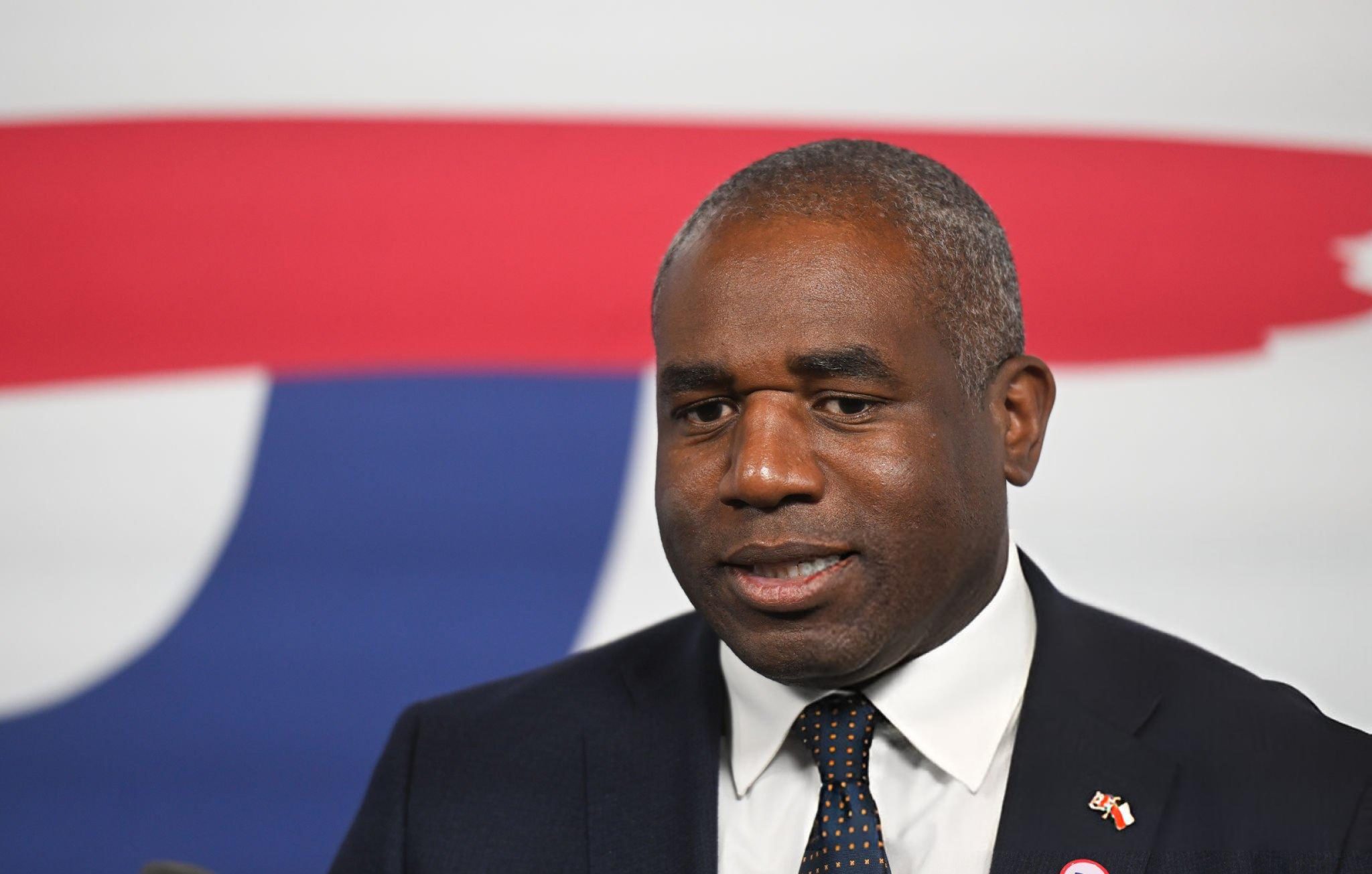Foreign Secretary David Lammy has embarked on a high-stakes diplomatic mission to Norway and Iceland amid growing concerns over Russian activities in the Arctic, a region rapidly emerging as a new frontier in global geopolitics.
Mr Lammy’s visit comes as the UK ramps up efforts to counter what it describes as “hostile state activity” in the High North, particularly in the face of Russia’s expanding military and economic ambitions. The Foreign Office confirmed that UK sanctions have significantly hampered Russian President Vladimir Putin’s Arctic operations, including his fleet of nuclear-powered icebreakers — critical assets in maintaining the so-called “shadow fleet” of commercial tankers evading Western sanctions.
In a notable development, a floating repair dock bound for Russian service in the Arctic has been left stranded in the Mediterranean. The delay was caused after the Vengery tugboat, tasked with towing the platform from Istanbul to Arctic waters, was placed under UK sanctions earlier this month.
Speaking ahead of his meetings with Nordic counterparts, Mr Lammy said the Arctic was becoming “an increasingly important frontier for geopolitical competition and trade,” pointing to the melting polar ice which is opening up new shipping lanes and access to vast untapped reserves of oil, gas and minerals.
“This is a region where Russia’s shadow fleet operates, threatening critical infrastructure like undersea cables to the UK and Europe, and helping fund Russia’s aggressive activity,” he said.
The Foreign Secretary will discuss regional security with officials in Norway and Iceland, and examine collaborative efforts to protect vital seabed infrastructure such as undersea communications cables — systems considered highly vulnerable to disruption by Russian naval activity.
As part of this mission, Mr Lammy also announced a new joint UK-Icelandic initiative aimed at harnessing artificial intelligence to detect and monitor hostile state behaviour in the Arctic. The scheme, backed by £554,000 in UK funding through the Alan Turing Institute, will explore how cutting-edge AI technologies can enhance surveillance and response capabilities in the region.
“It’s more important than ever that we work with our allies in the High North to enhance our ability to patrol and protect these waters,” Mr Lammy added.
Russia’s northern fleet of warships and commercial tankers continues to draw scrutiny as Moscow seeks new routes and partners to circumvent international sanctions imposed following the 2022 invasion of Ukraine. Icebreakers play a crucial logistical role in escorting these vessels through increasingly navigable Arctic waters — a role the UK aims to disrupt through sanctions and increased surveillance.
Mr Lammy’s tour also includes a historic visit to the Svalbard archipelago, making him the first UK Foreign Secretary to travel to this remote territory within the Arctic Circle. Svalbard is home to a number of scientific research initiatives, where British scientists are working with Norwegian and international colleagues to study climate change and environmental shifts in the polar region.
In support of this, the Foreign Office confirmed a further £400,000 from the Global Science Tactical Fund to strengthen UK-led scientific collaboration in the Arctic.
While in Iceland, Mr Lammy is expected to visit the Keflavik Air Base, where the Royal Air Force has participated in NATO air policing operations. The base has become a vital node in the alliance’s collective defence posture as tensions with Russia continue to simmer.
This Arctic mission underlines the UK’s commitment to upholding security and scientific cooperation in one of the world’s most strategically sensitive regions. As the geopolitical chessboard shifts northward, the Foreign Secretary’s visit sends a clear message: the UK, in concert with its Arctic allies, will not allow the region to become a playground for unchecked Russian aggression.






